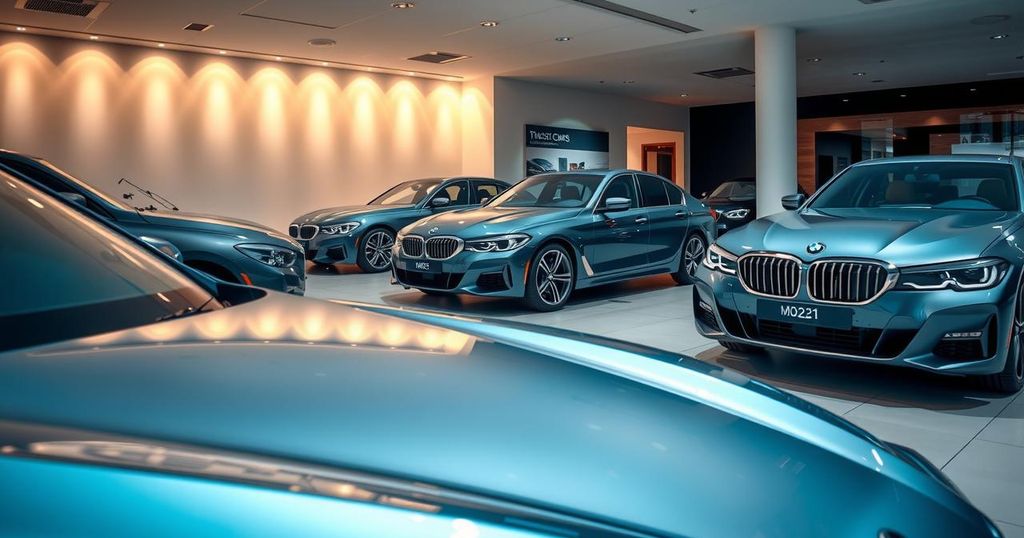BMW Faces Profit Pressure Amid China’s Economic Challenges and Rising Tariffs
BMW expects slight sales growth in 2025 but warns of flat earnings due to economic challenges in China and rising tariffs affecting profit margins. The company plans to invest heavily in its product lineup while adjusting production strategies in response to U.S. trade policies and competitive market pressures.
BMW projects a slight increase in sales by 2025, although it warns of flat earnings due to ongoing economic hurdles in China and rising tariff rates. As a German automaker reliant on Chinese profits, BMW is contending with fierce competition from local brands offering aggressive discounts amidst a decrease in luxury spending.
The company anticipates maintaining its profit before taxes in line with 2024, yet it sees its automotive unit’s margin remaining between 5% and 7%, significantly below their typical target of above 8%. Additionally, U.S. trade policies are expected to diminish margins by approximately one percentage point due to imposed tariffs on steel, aluminum, and vehicle imports, potentially impacting earnings by hundreds of millions of euros.
In light of these challenges, BMW plans to revise production locations and increase domestic component manufacturing in the U.S. to lessen tariff impacts. The automaker is also dealing with reduced electric vehicle demand and ongoing U.S.-China trade tensions that threaten its profitability. The automotive EBIT margin fell from 9.8% to 6.3% in 2024, with fourth-quarter margins dropping to 5.5%. Furthermore, group EBIT decreased from €18.48 billion to €11.51 billion, and revenue fell 8.4% to €142.38 billion.
Despite these pressures, BMW is making substantial investments in its future product offerings, committing over €18 billion in 2024 to research and development, particularly for its Neue Klasse digital production platform. The automaker plans to introduce its first model in this series later this year and aims to launch more than 40 new or refreshed vehicles by 2027, including a hydrogen-powered fuel-cell electric vehicle set for 2028.
While BMW foresees favorable market conditions in the U.S. and growing demand for electrified vehicles in Europe, the Chinese market poses persistent challenges. To maintain competitiveness, the company will expand its key model offerings, introducing the new BMW 5 Series, BMW X3, refreshed Mini lineup, and updated BMW 2 Series Gran Coupe.
Moreover, BMW has reduced its dividend from €6 to €4.30 per share, slightly lower than analysts had anticipated. The automaker is also pursuing shareholder consent for a buyback of up to 10% of its share capital over the next five years. Despite the ongoing financial strain, BMW remains committed to innovation and adapting to changing global market conditions.
In summary, BMW forecasts modest sales growth in 2025 yet anticipates flat earnings due to ongoing challenges in China and increased tariff pressures. The company acknowledges competitive threats from local brands and a decline in luxury spending, prompting strategic adjustments in production and investment. Although facing financial pressures, BMW is committed to future innovations within its product lineup while adapting to global market changes.
Original Source: www.cbtnews.com




Post Comment